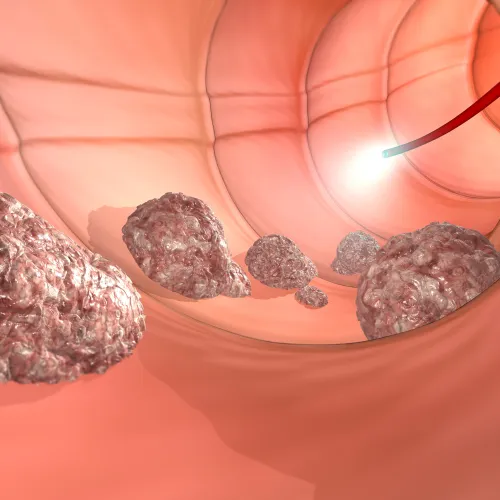4 Tips Help You Claim Colorectal Cancer Screening Payment

Look out for screening tests that are not covered for payment.
Billing colorectal cancer screenings for asymptomatic patients is a challenge for many gastroenterology practices because each state Medicare carrier may have its own rules concerning how to bill for these procedures. Although Medicare coverage of various colorectal cancer screening examinations is payable, you need to be precise using ICD-10 and HCPCS codes to maximize reimbursement.
Tick off all items in this checklist before submitting the claim for colorectal screening and see your physician get his deserved reimbursement.
Item #1: Justify Patient Risk Status With Supported Diagnostic Codes
Although all persons above 50 years of age are eligible for colorectal cancer screening tests even in absence of any symptoms, a patient must fall into the high-risk category for colorectal cancer to qualify for a screening colonoscopy or screening barium enema before age 50. For a patient to be classified as high risk, you have to use a certain diagnosis. You won’t get paid just because the patient has colorectal cancer screening as a benefit.
According to the American Cancer Society, the following conditions make your risk higher than average:
To be reimbursed for the screening, you must check the gastroenterologist’s notes to include an accepted diagnosis code denoting the high-risk status of the patient with the procedure code. The following ICD-10 codes are some examples of diagnoses that meet the high-risk criteria for colorectal cancer:
Other than these primary diagnoses, some secondary diagnoses from among the following family of diagnostic codes may also apply:
The final determination of what is an appropriate diagnosis for being at high risk has been left with the state Medicare payers, however, and the codes that each one will accept can vary significantly.
Item #2: Check Screening Frequency Rules
Medicare’s coverage of colorectal screening tests for patients includes multiple procedures available to an individual for the early detection of cancer. Although people of any age are eligible for a colonoscopy, all other tests are covered for people age 50 or older. The frequency restrictions for these tests depend on the patient’s risk category.
The frequency rules for high-risk patients (No age restriction) are:
One other option listed in some places, as a primary screening test is Computed tomography colonography (CTC). “However, virtual CT is not indicated for primary screening,” cautions Michael Weinstein, MD, Vice President of Capital Digestive Care. “Some states have their own regulations for non-Medicare. For Medicare, it may be covered under certain condition such as failed optical colonoscopy or some severe co-morbid health conditions,” Weinstein adds.
Exception: Other than the tests mentioned above, physicians may also order one of the following tests for screening. However, watch out, as these are non-covered colorectal cancer screening tests:
Item #3: Pick the Proper Screening HCPCS Code
In addition to using the correct diagnosis code, gastroenterologists should bill their Medicare claims for asymptomatic patients with the proper HCPCS code for the specific screening service provided.
You should use the following HCPCS codes with Medicare claims for colorectal cancer screening services for high-risk patients:
For billing a colorectal cancer screening test for an average/ no risk individual, you should choose from these two HCPCS codes:
“Gastroenterologists using code G0121 should do so when the patient fits the once every 10 year interval and should not be surprised to see a Medicare denial if the prior colonoscopy was less than 10 years. In that case the physician may not be able to bill the patient for the service unless an Advanced Beneficiary Notice was obtained,” Weinstein says.
Item #4: Separate Screening From Diagnostic Services
You should not confuse codes used to report colorectal screening services with the CPT® codes used to report diagnostic services. The HCPCS codes are used when the patient is asymptomatic, regardless of whether he or she is at high risk for colorectal cancer.
If the patient comes in with a symptom such as blood in stool and the gastroenterologist performs a colonoscopy, then you should bill the appropriate sigmoidoscopy or colonoscopy procedure codes 45330 (Sigmoidoscopy, flexible; diagnostic, including collection of specimen[s] by brushing or washing, when performed [separate procedure]) or 45378 (Colonoscopy, flexible; diagnostic, including collection of specimen[s] by brushing or washing, when performed [separate procedure]) for the diagnostic service.
Likewise, fecal-occult blood tests for diagnostic evaluation of symptomatic patients should be billed using the CPT® code 82274 (Blood, occult, by fecal hemoglobin determination by immunoassay, qualitative, feces, 1-3 simultaneous determinations).
If the GI converts a screening test into a diagnostic endoscopy due to abnormal findings, you should bill the appropriate CPT® code with modifier PT (Colorectal cancer screening test; converted to diagnostic test or other procedure) instead of the screening code.
Gastroenterologists also should ensure that patients referred to them for colorectal screenings are actually asymptomatic. Many times patients are referred for a screening when they really have symptoms, and those procedures should be coded as diagnostic




